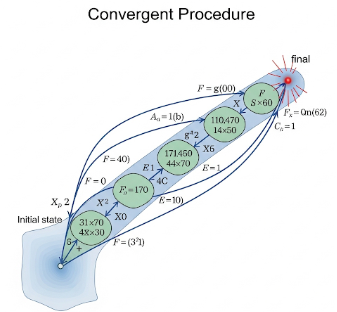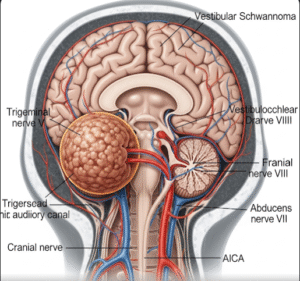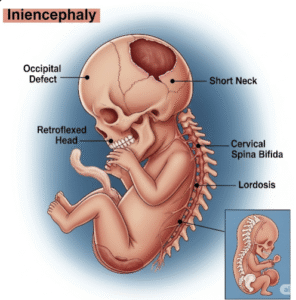Overview
The Convergent Procedure is a minimally invasive hybrid approach used to treat atrial fibrillation (AFib), a common heart rhythm disorder. It combines epicardial (outside the heart) surgical ablation and endocardial (inside the heart) catheter ablation to effectively isolate and destroy abnormal electrical pathways causing irregular heartbeats.
In South Korea, the Convergent Procedure is offered in advanced cardiology and electrophysiology centers, utilizing state-of-the-art imaging, robotic assistance, and hybrid operating rooms to ensure high success rates, safety, and rapid recovery.
What is the Convergent Procedure?
The Convergent Procedure is a hybrid surgical-catheter intervention designed to treat persistent or long-standing atrial fibrillation.
Indications include:
- Persistent or long-standing AFib resistant to medication
- Patients unsuitable for standard catheter ablation alone
- Structural heart changes increasing risk of AFib recurrence
- Symptomatic patients experiencing palpitations, fatigue, or reduced exercise tolerance
Purpose:
- Restore normal heart rhythm
- Reduce AFib-related complications, including stroke and heart failure
- Improve quality of life and cardiac function
Components:
- Epicardial ablation: Surgical energy delivered to the outside of the heart to isolate AFib triggers
- Endocardial catheter ablation: Catheter-based energy targets residual abnormal signals inside the heart
- Integrated hybrid approach: Ensures more complete and durable treatment
What are the Benefits?
The Convergent Procedure offers several therapeutic and quality-of-life benefits:
✔ High success rates in restoring normal sinus rhythm.
✔ Reduced recurrence of atrial fibrillation compared to single-method ablation.
✔ Minimally invasive with small incisions and less scarring.
✔ Shorter recovery time compared to traditional open-heart surgery.
✔ Reduces risk of AFib-related stroke and cardiac complications.
✔ Improved exercise tolerance and overall well-being.
Procedure Details
1) How should I prepare for the Convergent Procedure?
- Medical evaluation: Complete cardiac assessment including ECG, echocardiogram, and CT or MRI of the heart.
- Medication adjustments: Blood thinners may be paused; anti-arrhythmic drugs discussed with the cardiologist.
- Preoperative counseling: Explanation of hybrid procedure, anesthesia, risks, and expected recovery.
- Lifestyle preparation: Maintain a heart-healthy diet, avoid smoking/alcohol, and optimize weight.
- Consent: Understanding of the procedure, benefits, risks, and follow-up protocol.
South Korean hospitals provide personalized pre-procedure evaluation and patient education to maximize safety and outcomes.
2) What happens during the Convergent Procedure?
- Anesthesia: General anesthesia is administered.
- Epicardial ablation:
- Small incisions or a subxiphoid approach are used to access the outside of the heart.
- Energy (radiofrequency or cryotherapy) is delivered to isolate AFib triggers on the left atrium.
- Endocardial catheter ablation:
- Catheters are inserted through veins into the heart.
- Residual abnormal electrical signals are ablated from the inside of the atrium.
- Integration: Both approaches are combined to ensure complete electrical isolation.
- Duration: Typically 2–4 hours, depending on patient anatomy and AFib complexity.
Korean cardiac centers emphasize precision mapping, real-time imaging, and hybrid techniques to maximize success and minimize complications.
3) What happens after the Convergent Procedure?
- Immediate post-op: Patients monitored in a cardiac ICU; ECG and vital signs observed.
- Recovery: Mild chest discomfort and fatigue are common; pain is managed with medications.
- Lifestyle adjustments: Gradual return to daily activities; cardiac rehabilitation may be recommended.
- Follow-up: Regular ECG, Holter monitoring, and echocardiograms to ensure durable sinus rhythm.
- Medication: Temporary anti-arrhythmic or anticoagulant therapy may continue based on physician guidance.
Risks / Benefits
Potential Risks:
- ➤ Bleeding or infection at incision or catheter sites
- ➤ Cardiac tamponade (rare but serious)
- ➤ Stroke or transient ischemic attack during or after the procedure
- ➤ Damage to surrounding structures (esophagus, phrenic nerve)
- ➤ Recurrence of atrial fibrillation despite treatment
Major Benefits:
- ✔ High success rate in restoring normal heart rhythm
- ✔ Reduced AFib recurrence compared to standard ablation
- ✔ Minimally invasive with faster recovery
- ✔ Improved quality of life and reduced AFib-related complications
- ✔ Safe and performed by experienced cardiac teams in South Korea
Recovery and Outlook
- First week: Patients monitored for arrhythmias, bleeding, or other complications.
- 2–4 weeks: Gradual return to normal activity; mild fatigue may persist.
- 1–3 months: Full cardiac recovery, with continued monitoring of rhythm and heart function.
- Long-term: Many patients remain in normal sinus rhythm; reduced risk of stroke and improved exercise tolerance.
South Korean cardiac centers provide structured rehabilitation, lifestyle counseling, and continuous follow-up to optimize long-term outcomes.
When To Call the Doctor
Contact your cardiologist if you notice:
- ➤ Chest pain or pressure
- ➤ Shortness of breath or palpitations
- ➤ Fever or signs of infection at incision or catheter sites
- ➤ Swelling, redness, or bleeding
- ➤ Dizziness, fainting, or neurological symptoms
Best Korea Option / Process
South Korea offers world-class Convergent Procedure services due to:
- Expert electrophysiologists and cardiac surgeons specializing in hybrid ablation
- Advanced hybrid operating rooms with real-time mapping and imaging
- Comprehensive pre- and post-operative care including cardiac rehabilitation
- Integration of minimally invasive surgical and catheter techniques
- International patient support for scheduling, translation, and follow-up
- High success rates and patient satisfaction
Top hospitals for the Convergent Procedure in Korea:
- Samsung Medical Center, Seoul
- Asan Medical Center, Seoul
- Seoul National University Hospital
- Severance Hospital (Yonsei University Health System)













